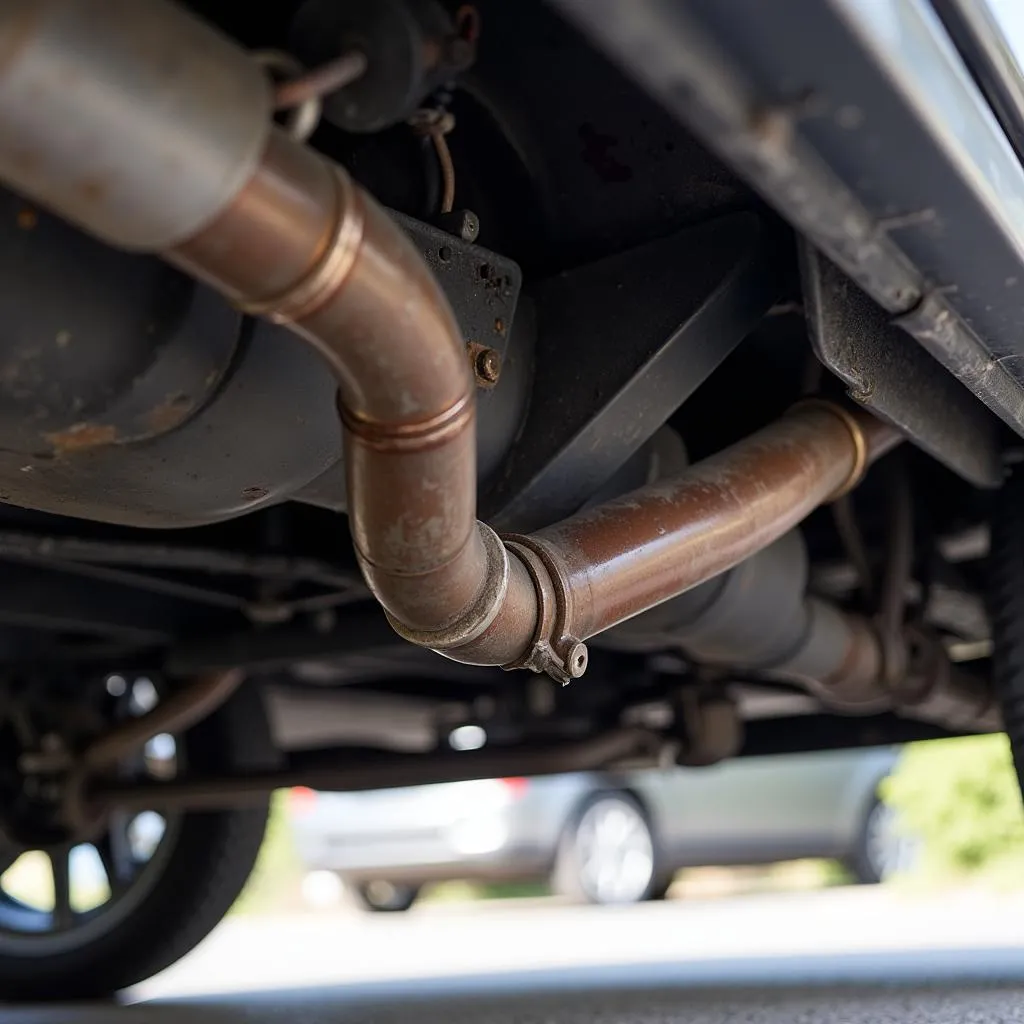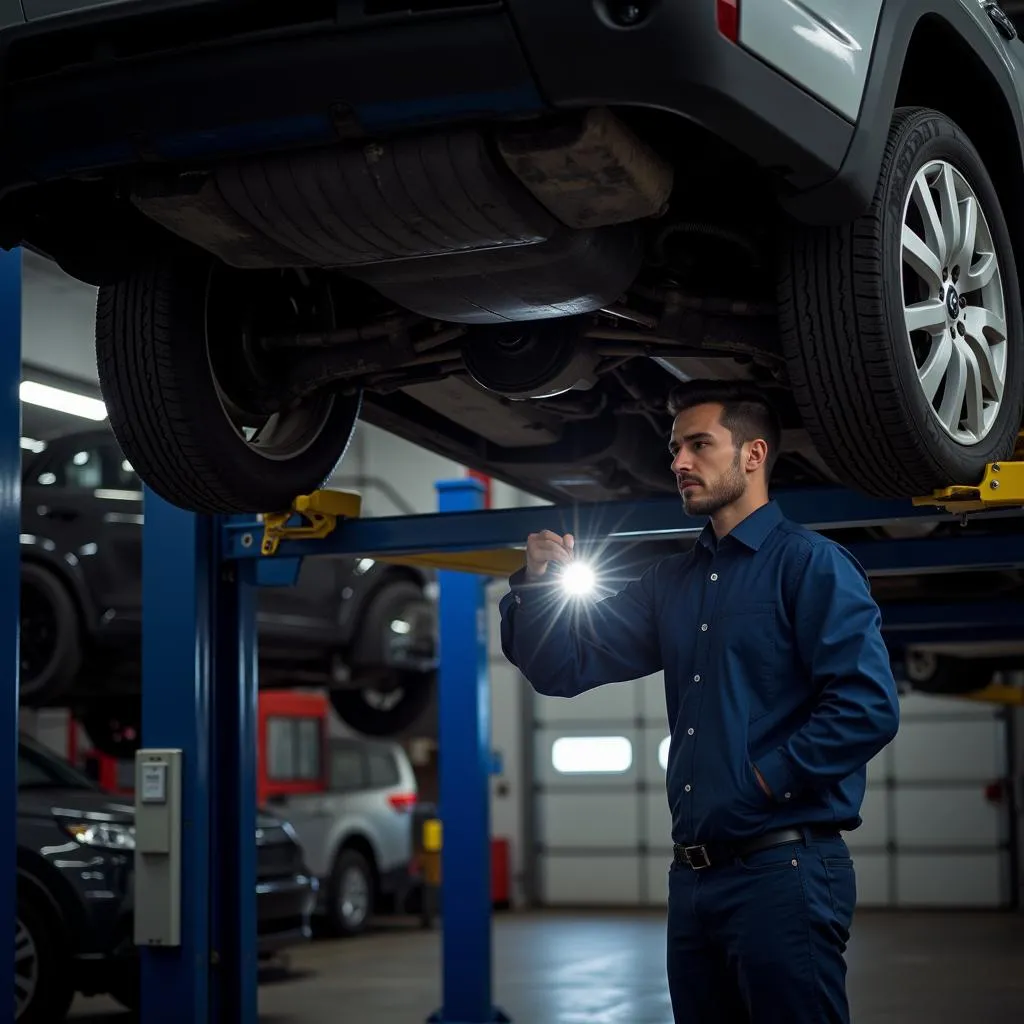Hearing a knocking sound from the rear of your car can be unsettling. Is it a minor annoyance or a sign of a serious problem? Pinpointing the source of the noise is crucial for determining the best course of action. This article will explore common causes of knocking sounds coming from the back of your car and provide insights into diagnosing and addressing the issue.
Common Causes of a Knocking Sound in the Rear of a Car
A knocking sound from your car’s rear can stem from various components, ranging from minor wear and tear to more significant mechanical issues. Here are some of the most common culprits:
Suspension System Issues
-
Worn Shocks or Struts: Shocks and struts are essential for a smooth ride, absorbing bumps and keeping your tires in contact with the road. When they wear out, you might hear a knocking sound, especially over bumps or uneven surfaces.
-
Loose Suspension Components: Over time, bolts, bushings, and other suspension components can loosen, resulting in a knocking sound during driving. This is often more noticeable on rough roads or when making turns.
-
Stabilizer Bar Links: These small links connect the stabilizer bar to the suspension and can wear out, causing a knocking or clunking sound when driving over bumps.
Exhaust System Problems
-
Loose Exhaust Parts: A loose exhaust pipe, muffler, or heat shield can vibrate against the undercarriage of your car, creating a knocking sound, especially at certain speeds or engine RPMs.
-
Damaged Exhaust Hangers: These rubber mounts secure the exhaust system and can wear out or break, leading to excessive movement and knocking sounds.
 Loose exhaust pipe hanging under car
Loose exhaust pipe hanging under car
Other Potential Causes
-
Worn Wheel Bearings: A failing wheel bearing can produce a knocking or rumbling noise that gets louder with speed or when turning.
-
Loose Objects in the Trunk: Sometimes, the culprit is simply a loose object rolling around in your trunk, mimicking a knocking sound from the rear of the car.
-
Brake Issues: While less common, worn brake components or loose calipers can also generate a knocking sound, especially when applying the brakes.
Diagnosing the Knocking Sound
Identifying the exact cause of the knocking sound requires careful observation and, in some cases, professional inspection:
- Pay attention to when you hear the noise: Does it happen when driving over bumps? When turning? When accelerating or braking?
- Note the frequency and intensity: Is it a constant knock or an intermittent sound? Does it get louder or change with speed?
- Inspect your car: Visually check the rear suspension, exhaust system, and tires for any visible signs of damage or loose components.
- Consult a Mechanic: If you cannot pinpoint the source of the noise or suspect a serious problem, it’s best to seek professional help.
 Car mechanic inspecting a vehicle
Car mechanic inspecting a vehicle
Expert Insights
“Many car owners underestimate the importance of regular car maintenance,” says John Miller, a senior mechanic with over 20 years of experience. “Regular inspections can help identify minor issues before they escalate into costly repairs. A simple check-up can save you a lot of trouble down the road.”
Conclusion
A knocking sound from the rear of your car should never be ignored. While it could be a minor issue, it’s essential to identify and address the problem promptly to prevent further damage and ensure your safety on the road. By paying attention to the specific symptoms and seeking professional assistance when needed, you can keep your car running smoothly and avoid unexpected breakdowns.
